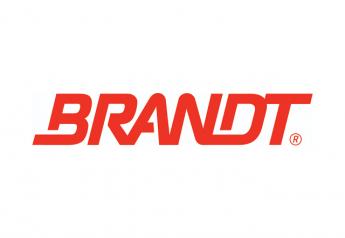5 Millennial Management Tips

Engage, motivate and train a stellar team
Odds are good you have millennials on your team. You might even be one of them. This demographic claims more than one in three U.S. jobs, according to the Pew Research Center. Whether you are managing millennials or you are a millennial leader responsible for guiding a group of employees in day-to-day operations on your farm, generational differences shouldn’t be ignored.
To make sure your team is embracing millennials to perform at peak capacity, follow these guidelines as part of your leadership strategy.
1. Drop assumptions. Yes, millennials can exhibit frustrating traits such as an addiction to social media and a high need for praise. But they are also tech-savvy and the most educated generation in the world’s history. It’s unfortunate members of this generation often are associated with negative labels, says Sarah Bohnenkamp, a leadership coach for millennials.
“It is easy to judge and stereotype because we have different experiences and environments,” Bohnenkamp says. “But millennials are frustrated that they are judged all the time.” Employers should work to understand their employees as individuals and maximize the unique talents they bring.
2. Set clear expectations. Tension and stress erupt when employees and employers aren’t on the same page. This is especially true for millennials who seek value and fulfillment at work, says Aoife Lyons, Alltech global director of education initiatives and a licensed clinical psychologist. Discuss expectations and reinforce them.
“At the beginning of a relationship is the only time you can set expectations and guidelines,” Lyons says. “The biggest reason a millennial leaves a job in the first two years is because the job was oversold.”
3. Consider alternative approaches. Because farming is a cyclical business, managers can become resistant to change. Does your farm’s culture imply all tasks must be done a certain way? “Don’t let fear and resistance to change drive your behaviors,” Bohnenkamp says. “Recognize there is always room for creativity and innovation.”
Many millennials bring more experience than their predecessors because of a focus on education and internships. As a result, it will frustrate them if their new ideas are quickly shut down.
4. Communicate their way. How and when you converse with your team is vital. Communicate in the method that works best for employees, Bohnenkamp says. Some team members might prefer in-person meetings. Others want a call or a text. Along the way, ask for feedback about your communication style. “When you’re speaking with someone, ask, ‘What did you hear?’” Lyons says. “Make sure it matches what you meant to say.”
5. Encourage two-way mentorship. Millennials place a premium on values such as empathy, understanding and collaboration, Lyons explains. This means they want the opportunity to receive and provide feedback during the course of business. “The traditional way to give feedback was to have annual review, but this generation wants constant feedback,” she says.
Developing a mentor program also can facilitate communication and improve job confidence. “Millennials are very low risk-takers,” adds Linda Sowers, an instructor of ag economics and ag journalism at the University of Missouri. “They need mentors, someone they can ask questions and get permission to take a risk.” They also have skills and experiences that can aid older employees.







